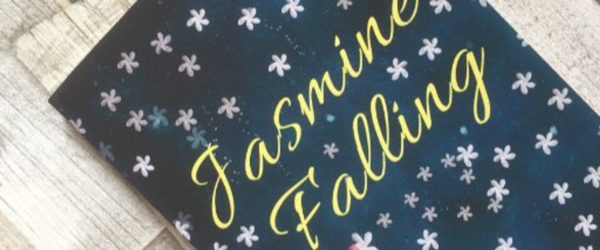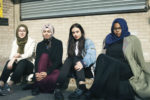Jasmine Falling is the debut novel of British Palestinian writer (and MMW Contributor!) Shereen Malherbe. It is a tale of self-discovery and finding belonging, set mostly during ten action-charged days in Jerusalem, where Jasmine travels to find her missing father after her mother’s death. I spoke with Shereen about the inspiration for the novel, the work of writing it, and what advice she would give aspiring novelists.
- How would you describe your novel Jasmine Falling? Is it a mystery, a romance, a coming of age story, all of the above?
I would describe it as all of the above! The best advice I was given was to be a storyteller. My interpretation of this, was to include elements that make the journey memorable so by weaving in these genres it hopefully offers that to my readers.
- Did you imagine a particular kind of reader when you were writing the novel?
I imagined a reader who wanted to explore. When I began writing, I imagined women between the ages of 18-30 but since the story has been out in the world, some of my biggest fans have been men outside of this age group. This reinforces my point above! Although refining and targeting a group of readers is an important part of the process, I don’t think a writer should be restricted to it.
- Where did you get the idea for the story? And what was the writing process like?
The idea for the story was a culmination of my experiences travelling around Palestine. I discovered so many unique stories and interpretations of Palestinian and Israeli history that I had never heard before.
The writing process was an entirely different experience! Whereas the travelling was natural, the technical aspects to writing needed to be studied and researched in order for the novel to take shape, so I took a year out to gain qualifications in my ongoing English Literature Degree and then went back to my novel.
- Most of the story is narrated from Jasmine’s point of view, but at several points you slip into an omniscient narrator’s voice, and at other points you switch to Josh’s perspective. What does each perspective add?
When I discovered stories in Palestine, they were often told from varying viewpoints. It would not have been possible to present my portrayal of this land without changing perspectives to allow other people’s words to permeate the story.
This is where the technical aspects needed to be adhered to so the novel keeps the reader concentrated in the point of view of Jasmine, and then transitions to allows exploration into other people’s points of view.
- The protagonist Jasmine is not very likeable in the beginning. We get a sense of her better nature when we find out that she cared uncomplainingly for her sick mother, but she seems quite naïve in the first few chapters. Can you speak a little about writing an “unlikeable” protagonist?
People are all shaped by their life experiences and I wanted a character who wasn’t perfect. There would be no fun in writing a perfect character and no one I have ever met is without flaws!
- One of the things I was struck by most in the novel is the sense of place and the long passages of descriptions. Were you consciously using Jasmine’s outsider perspective to allow her to become our guide into Jerusalem?
Absolutely. I wanted the novel to be a guide to a land that people rarely get to experience. The government travel advice often tells travellers to avoid certain parts of the country and living with locals, I was able to experience those areas and see a whole different side to often misinterpreted and misunderstood country.
- Is the search for the absent father symbolically the search for belonging in your story?
Yes, it does represent the search for belonging. It is also representative of loss and allows Jasmine to discover parts of her unknown heritage and identity.
- What do you feel the “magical realism” elements such as the references to the djinn, the fortune-teller and the story of Jasmine’s ring add to the story?
I wanted to capture an almost surreal feel to the story. Palestine itself is wrapped in story, myth and religious discourse so for me, it was an integral part of being authentic to its location and people.
- Will there be a sequel?
There will be a sequel. In Book 2, Jasmine returns to England, so it will be interesting to see what happens to her back in the place she calls home.
- Finally, here’s the question that all novelists must get at some point! You’ve previously written about diversity in publication and the problems you encountered. What advice do you have for aspiring novelists who want to get their work out there, in particular Muslimahs?
I would say to read a lot and study what the composition of a story should be. Once you really understand the rules, you can be more confident to break them! Also, be aware of the current issues in publishing but don’t let that hold you back. Readers will ultimately decide what they want to read so strive to compete not through necessarily snagging a top publisher, but with a beautiful, well written story. One that only you can tell.
Thank you for sharing your experience with us!



